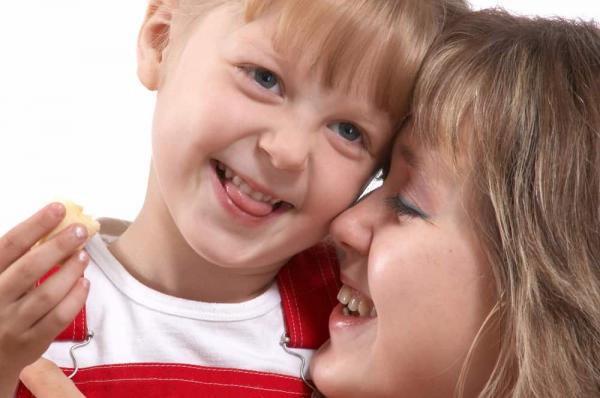
As parents, we're constantly chatting to our preschoolers. We know this is important from a language acquisition point of view. Preschool children expand their vocabulary and become more articulate at expressing their thoughts every day. So we chatter away, pointing out the obvious, using new words, reinforcing old ones, and putting familiar words in different contexts. What we don't always allow for is that they're listening. Really listening. You only have to examine how many of your own deeply held beliefs stem from your very early years to realize how influential those early conversations can be.
This is a good thing. It means that what you say and do frequently in the very early years, when you're still the center of your child's universe, matters more than what happens during those turbulent teen years. By then, your child will be pushing boundaries in her quest for independence, but to some extent her character is already set.
Here are some things we can say to our preschoolers that may well shape their character for years to come.
How do you feel about that?
Learning empathy is one of the big challenges of the preschool years. And it starts with a child recognizing and acknowledging his own feelings. It's never too early to start talking about what makes your child happy, sad or angry. Self-awareness is a great foundation for a strong and adaptable character.
How do you think X feels?
This is the next step on the road to empathy. Learning from a young age to consider others feelings helps your child develop kindness, compassion and a strong moral compass. There are many ways to teach our children how to determine what's wrong and right, but the simple rule of treating others as you would like to be treated still has its place. Empathy, compassion and morality are all interlinked.
I'm proud of what you did, there
We all know it's a good thing to tell our kids we're proud of them, and kids love to hear it, especially at a very young age. That's why the preschool years are a great time to point out the specific actions and behaviors that make us proud.
As a standalone phrase 'I'm proud of you' is actually pretty meaningless. Preschoolers are like the rest of us. Some of their behaviors are good and some are bad. We need to point out exactly what made us proud, so they know which behaviors we value.
Tell me if you need help with that
Preschoolers love to learn new things and often want to do it all alone, which is why how we offer help is important. 'Tell me if you need help with that', not 'you need help' or 'let me help' or even 'can I help?' though those phrases can all be appropriate at times. The early years are a great time to teach kids that you're always there to help, and that they can tell you if they need you. It's also a good time to let them know you trust them to do it alone, so you won't force unsolicited help on them or help before they've had a chance to do it their way.
You worked hard at that
Praising effort builds a character that recognizes how important hard work is. It's fine to praise your young child for something that he's naturally good at, but if you want to raise someone who knows what hard work looks like and how to do it, praise him when he works hard, whether he's learning to draw a cat or tie his shoe laces. Knowing that many of his achievements are simply down to his own hard work teaches your child that he can achieve what he wants in life if he puts the right amount of effort in. It breeds a sense of competence and self-esteem.
I think you can...
Self-belief is an important character trait and one many children struggle to achieve. And the generic 'you can do it, buddy' attitude we throw around with our kids may actually frustrate them, especially if they can't, as yet, do it. A more helpful phrase is 'I think you can do it', or, if appropriate, 'I think you can learn to do it/give it a try/practice so it gets easier.' Kids have amazing faith in their parents. Knowing we think they can get there is more encouraging than a general 'you can do it' platitude.
Conversations count. Even with a preschooler. Maybe a few simple tweaks to yours will help you raise a stronger, happier adult.

